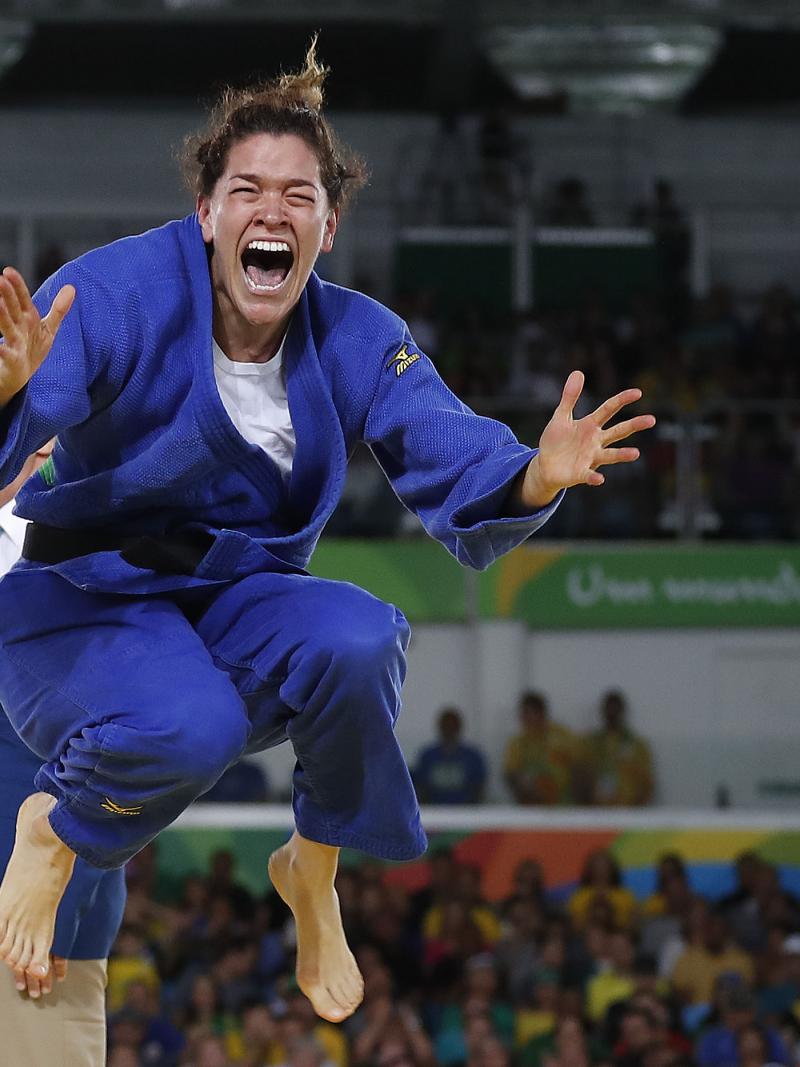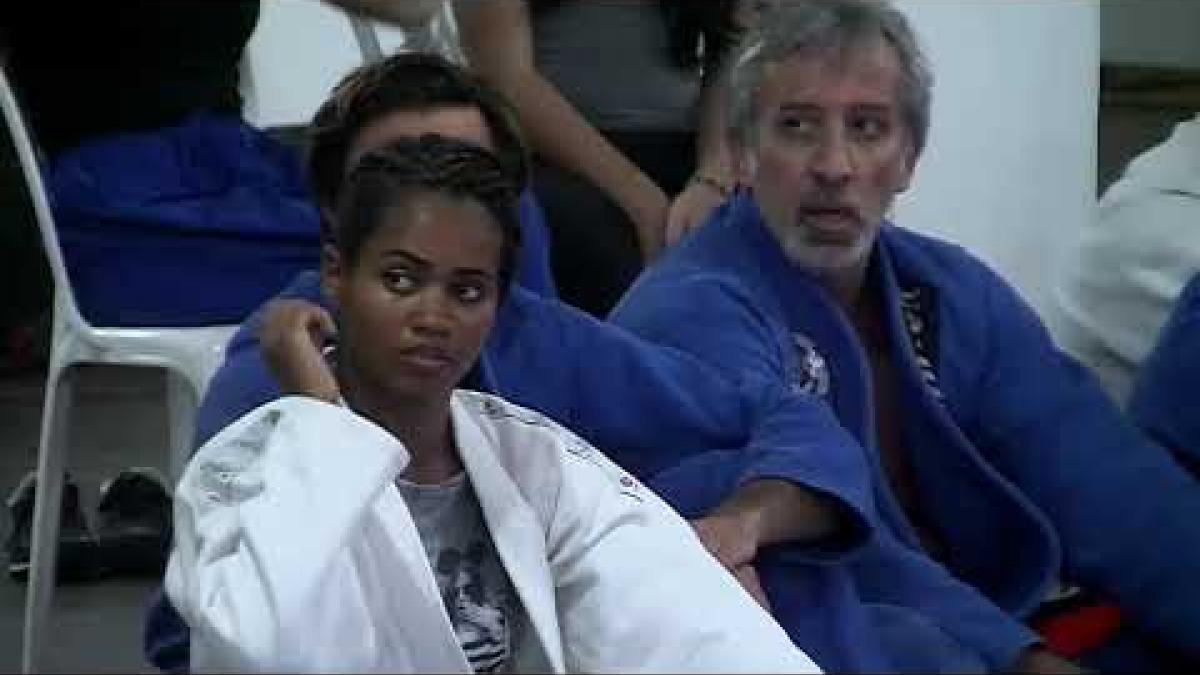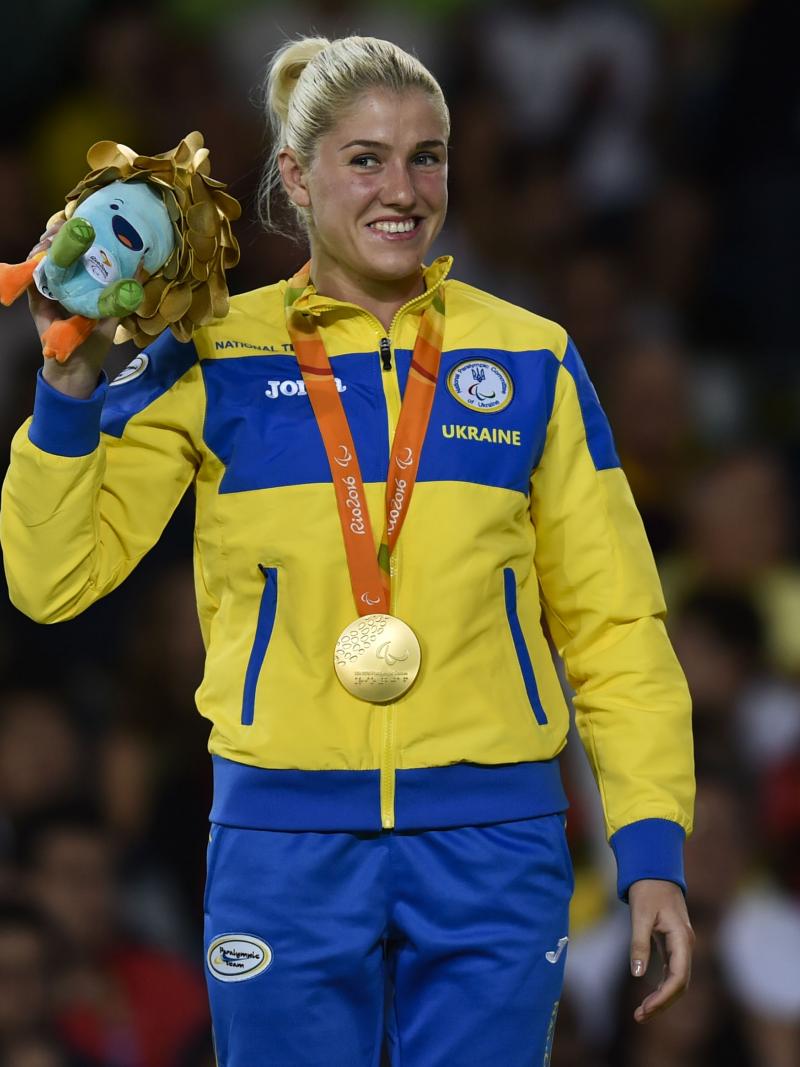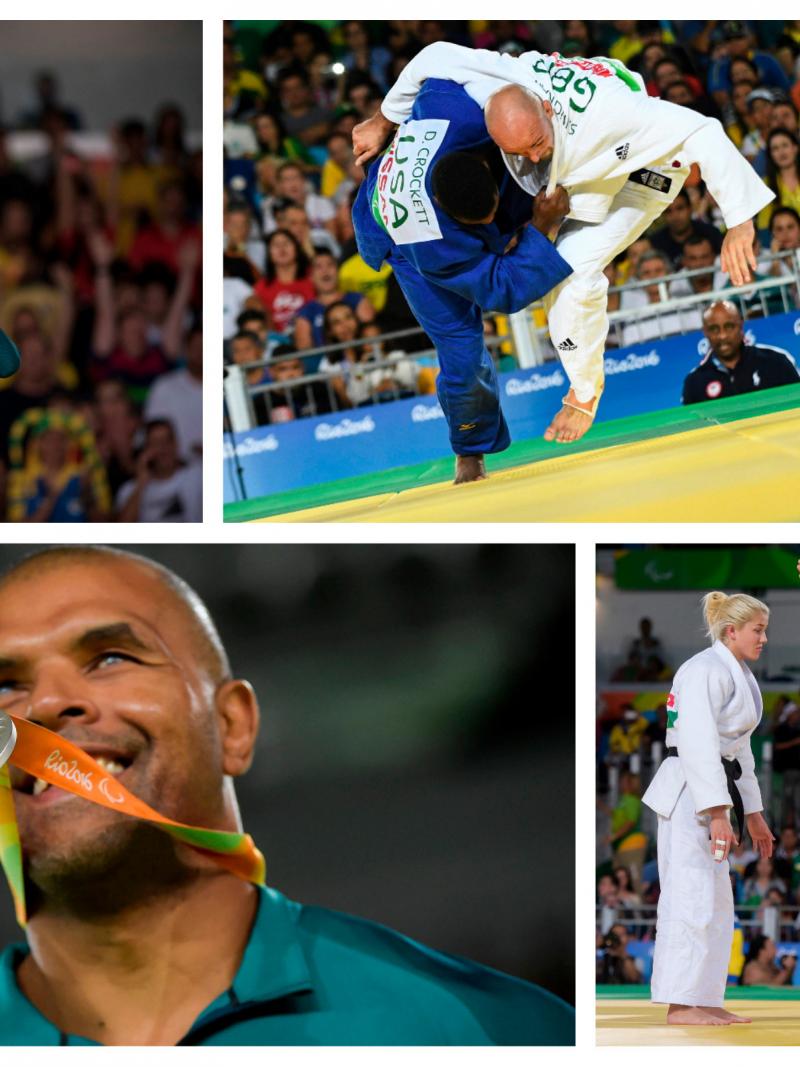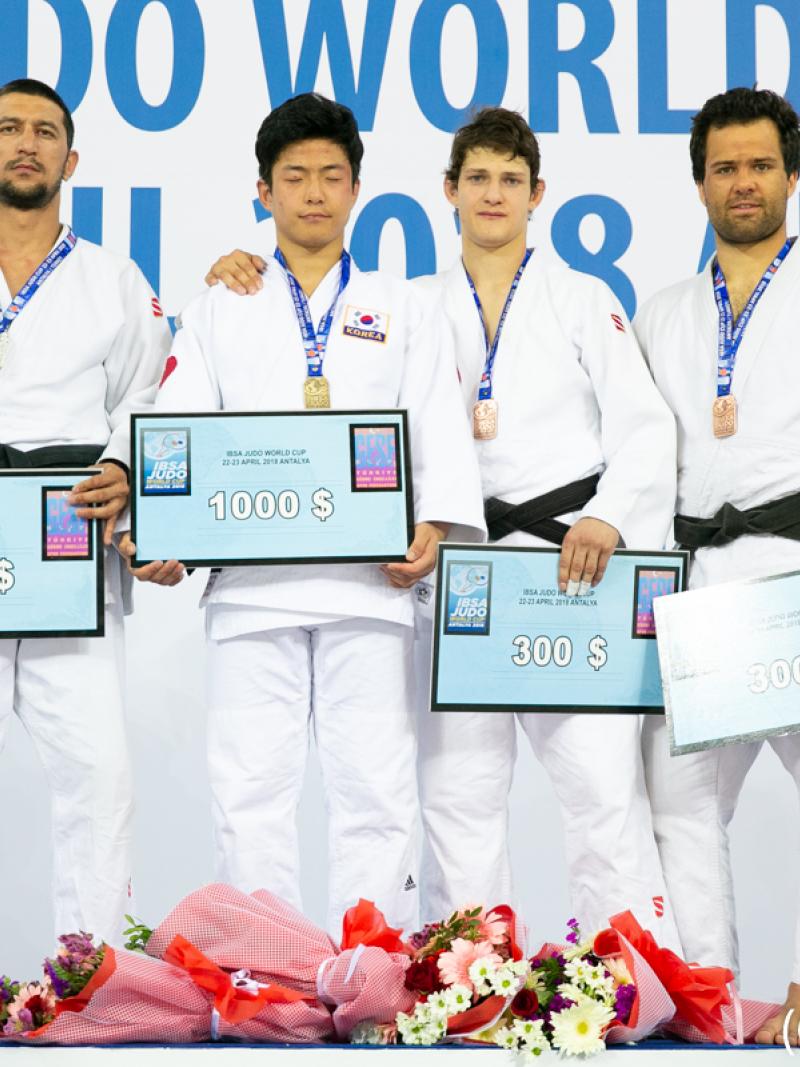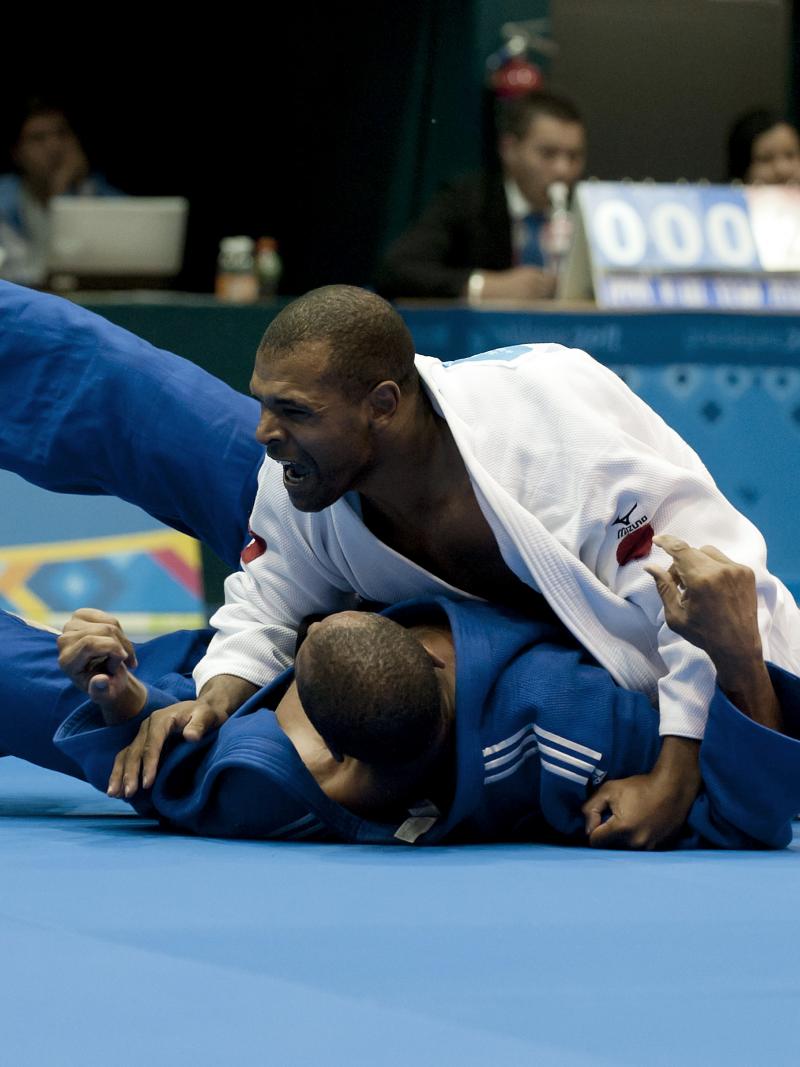Priscilla Gagne preparing for Pan American Championships
Canadian judoka looking forward to competing in front of home crowd 06 May 2018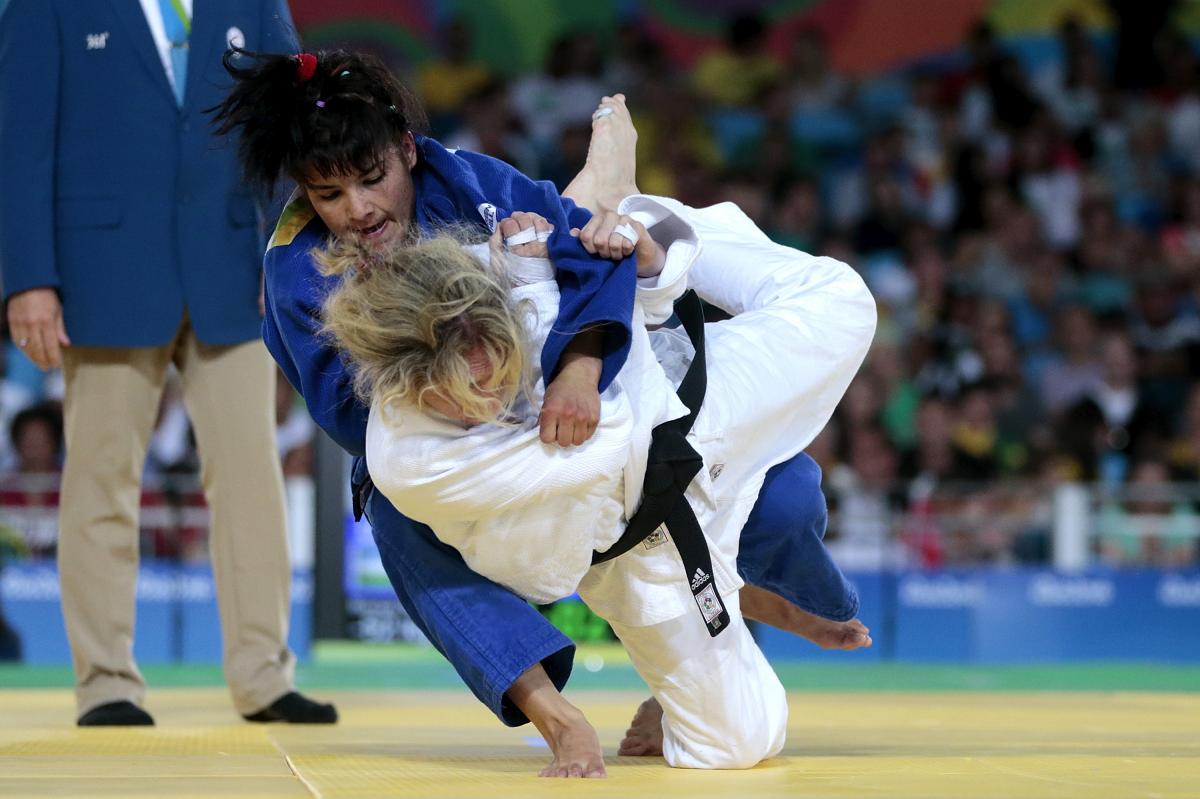
Canadian judoka Priscilla Gagne (in white) fights Sevinch Salaeva of Uzbekistan at Rio 2016
“You can’t predict judo; a split second can change everything. I’m aiming for gold every time I step on the mat, but I’m aware that it’s not always possible.”
For the first time this year, the spectators coming to the Open National Championship in Calgary, Canada, will also be seeing athletes with a visual impairment in action through the 2018 International Blind Sports Federation (IBSA) Judo Pan American Championships.
Around 50 athletes from the Americas will be fighting to become continental champions on 20 May.
Priscilla Gagne, who will be representing Canada, is very excited about the two events being paired.
“It’ll be the first time my teammates will see me in action during an important competition. We train together all the time, but our competitions are never at the same place. I’m really excited about experiencing the atmosphere of having my team around me!”
Gagne started training in judo in 2009. When she began, her family members did not all agree with her decision. Her father and her brother were encouraging her to step out of her comfort zone, while her mother was worried about her choice of a combat sport.
The Canadian has retinitis pigmentosa, a visual impairment affecting her central vision. She was born with the condition, but she only received a diagnosis when she was 24 years old. That did not keep her from wrestling in high school and being a member of the national goalball team, another Paralympic sport for blind and visually impaired athletes.
Her beginnings in judo were modest, but in the last few years, she started making waves on the international scene and is putting all her energy into training. She even moved to Montreal to train at the national training centre, located in the Olympic stadium.
Outside of training, judo has helped her a lot. Her balance has improved tremendously, and she developed better reflexes, which help her avoid injuries.
Even though her goal is to win a gold medal at the Pan American Championships in May, Gagne tries not to put too much pressure on herself.
“You can’t predict judo; a split second can change everything. I’m aiming for gold every time I step on the mat, but I’m aware that it’s not always possible,” she explained.
In addition, some up-and-coming athletes will also be in Calgary. They are young and people do not know them yet, which makes them unpredictable.
After the Pan Ams, the judoka will start her preparation for the Tokyo 2020 Paralympic Games. Her result in Calgary will be very important, because it could help her have a better world ranking and improve her chances of qualifying for Tokyo 2020.
After that, Gagne does not plan on retiring but she would like to be more involved in recruiting new athletes. “For the last few months, there has been an in-school judo programme for students with visual impairment in Montreal. I enjoy working with them, and I’d like to do more. It’s my way of giving back to my sport,” she concluded.
The 2018 IBSA Judo Pan American Championships are also an important test for the 2018 World Championships in Lisbon, Portugal, from 16-18 November.

 Facebook
Facebook
 Instagram
Instagram
 Twitter
Twitter
 Youtube
Youtube
 TikTok
TikTok
 Newsletter Subscribe
Newsletter Subscribe

